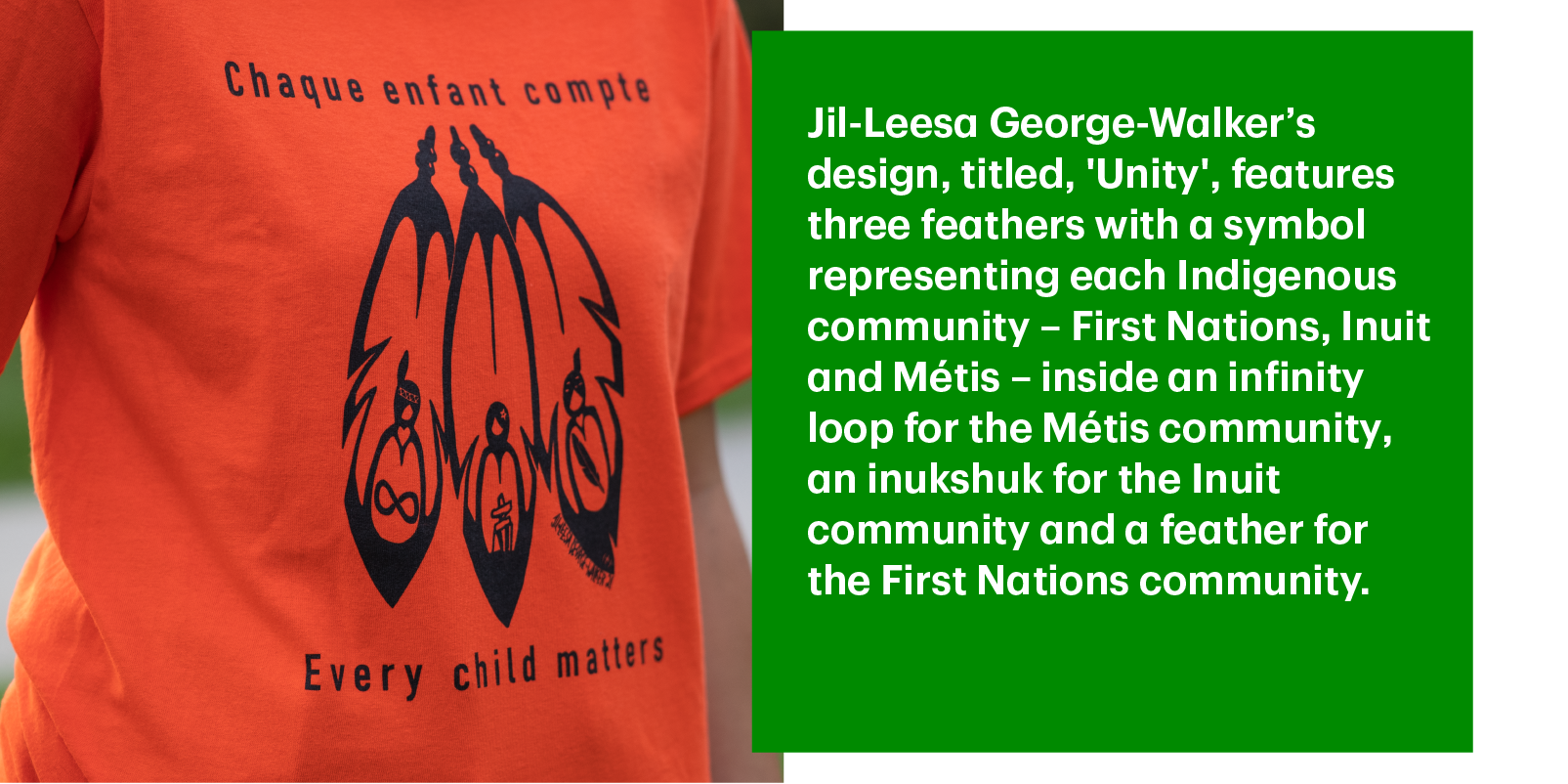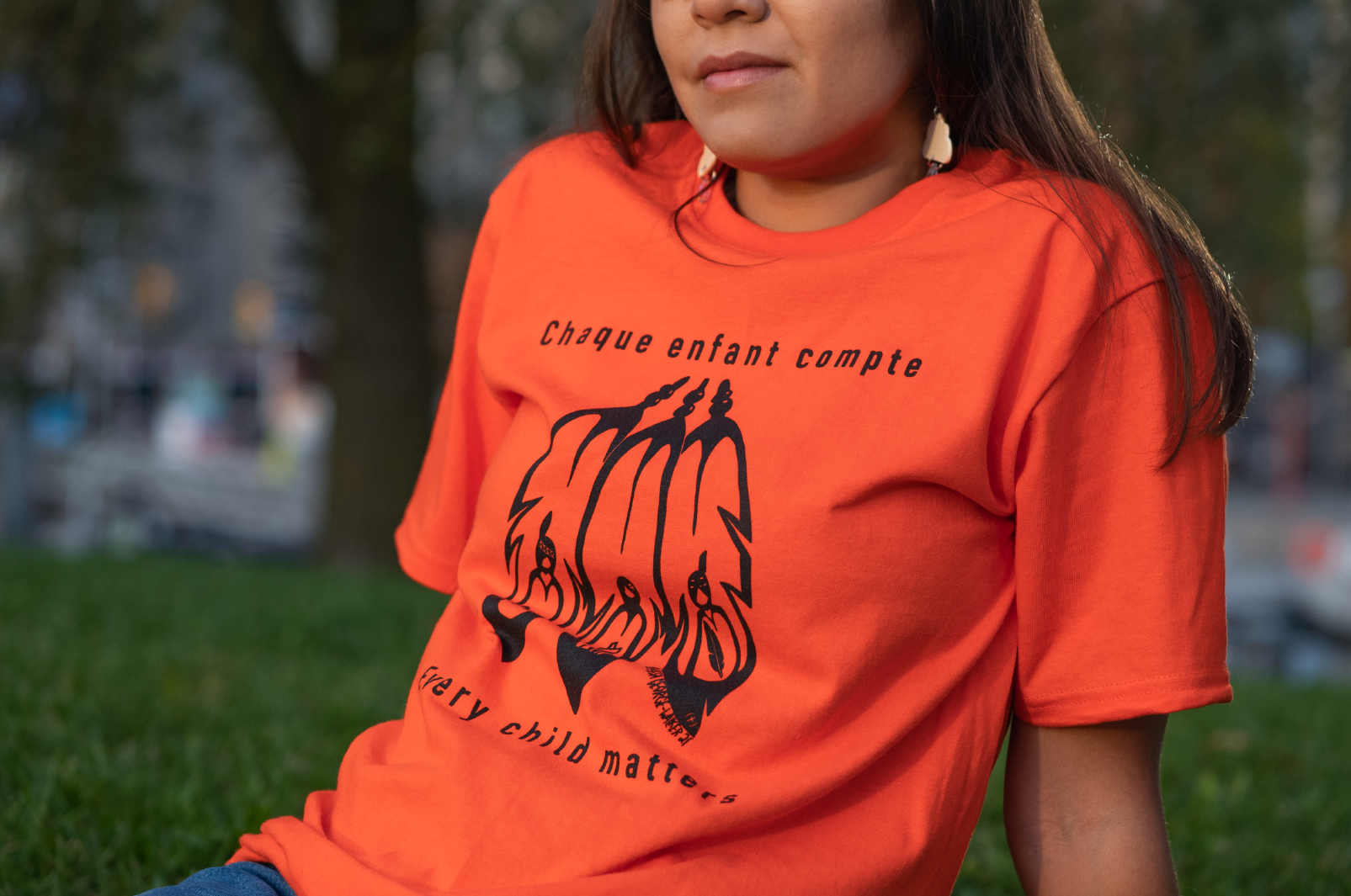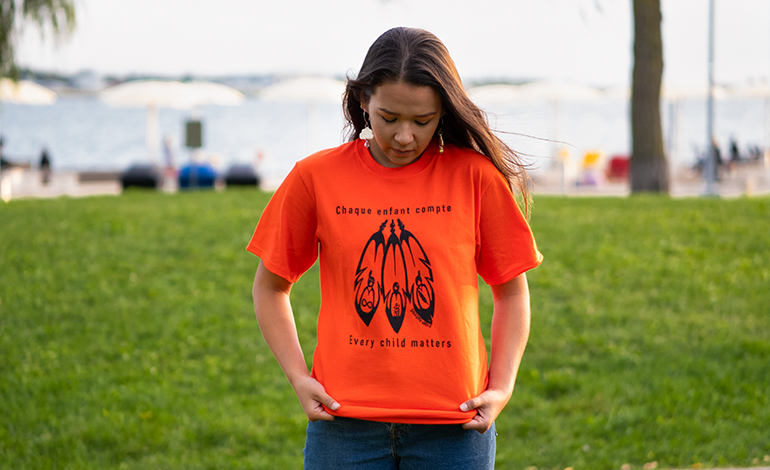Jil-Leesa George-Walker had a feeling this year was going to be different.
A member of the Deer Clan from the Aamjiwnaang First Nations reserve near Sarnia, Ontario, George-Walker grew up hearing stories about the dark legacy of residential schools in Canada.
But, like so many people, she wasn't prepared for the rush of feelings she experienced by the discoveries of mass graves at several former residential school sites across North America earlier this year.
For many like George-Walker, the horrific discoveries at sites near Kamloops and Regina felt like the reopening of old wounds, and forced families and Indigenous communities to come together to face these losses and deal with grief that had not begun to heal.
"They were called the ‘Lost Generation’," said George-Walker, whose traditional name is Spotted Fawn.
"I knew about residential schools, I was educated. I knew that neglect, abuse and death were all very real. But this, being faced with the thousands of victims and counting that never came home, is something completely different to try to comprehend."
George-Walker said that for some, the discoveries felt like reliving past trauma, while for others it was experiencing trauma they had known about but never witnessed first-hand.
"It's painful, it's heartbreaking and it's scary," she said. "I see my family and community struggle with these impacts each and every day. It's a part of us."
That's when she knew she wanted to get involved in Orange Shirt Day this year.

Orange Shirt Day
For nearly 10 years, September 30 has been recognized as Orange Shirt Day in Canada, a day when Canadians wear orange shirts as a symbol of remembrance of the tragic, ongoing legacy of residential schools.
But this year, George-Walker said she began spotting Canadians wearing orange shirts – many of which featured the mantra "Every Child Matters" – much earlier than September 30.
So, George-Walker decided to use her skills as an artist to help contribute towards Orange Shirt Day.
"I was honoured to have the opportunity to work on a design for TD," she said.
Her design, titled, 'Unity', features three feathers with a symbol representing each Indigenous community – First Nations, Inuit and Métis – inside an infinity loop for the Métis community, an inukshuk for the Inuit community and a feather for the First Nations community.
"I created a design that was inclusive of everyone from all communities affected by residential schools," said George-Walker, who identifies as First Nations and two-spirit.
"This year is about coming together to help and support one another through this difficult time – which was my inspiration for the name."
Orange shirts are a way to recognize those lost, survivors, their families and their communities and, to bring much needed attention to the lasting impacts these government-sanctioned schools have had on the Indigenous community," she said.

National Day for Truth and Reconciliation
Later this month, Canada will commemorate the tragic history and ongoing legacy of residential schools by observing the National Day for Truth and Reconciliation on September 30. The date will be a statutory holiday for federally regulated workplaces in the country, including TD.
George-Walker said the establishment of the National Day for Truth and Reconciliation is a positive step. She believes that although this year's discoveries of mass graves at residential schools serves as a horrific reminder of the trauma that continues to follow the Indigenous community, these discoveries hold another meaning as well: The truth.
Which is something she believes was never included in history books, school curriculums or news outlets; a secret that was kept hidden from most of the population was finally being brought to attention, she said.
"Our blood holds memories; it remembers the ache of hurting from generations ago," she said.
"These tragedies hold a deep-rooted meaning. These discoveries are horrifying, and I wish more than anything that they weren't true but I'm thankful they're out now. Not only can these children be laid to rest properly and find peace but there's no more hiding. We're all finally being faced with the truths of our collective past and they can't be ignored."
George-Walker said she hopes that when people put on their orange shirts this year, they take a moment to truly think about why they are wearing them.
"Remember all the children that never returned home, those who survived (who are anything but unscathed), and their families, friends and communities who are still dealing with the aftereffects of residential schools today," she said.
TD is providing Orange Shirts for colleagues in Branches across Canada. For customers who would like to purchase their own shirts, we encourage them to purchase from businesses owned by Indigenous Peoples, such as the Orange Shirt Day Society, to help support and give back directly to Indigenous Peoples and Communities. To learn more about Orange Shirt Day and the Orange Shirt Day Society, visit: https://www.orangeshirtday.org/about-us.html
To learn more about TD's commitment to Indigenous Communities, visit: https://td.com/indigenous
